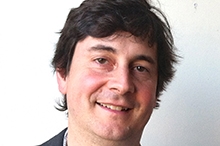

Sasha Chanoff is being honored as a White House Champion of Change for World Refugees.
In the past two decades of work with the U.S. Refugee Resettlement Program, there is one situation that stands out, a life and death decision point in my work that changed me and opened the doors to starting RefugePoint.
In February of 2000, I was part of a small U.S.-funded rescue team that went into the Congo to evacuate people who were being massacred there. Our mission was to get out 112 survivors who were stuck in a safe haven outside Congo’s capital, Kinshasa. My boss David at the International Organization for Migration, where I worked at the time, had overseen six months of evacuations that had flown out nearly 2,000 people who would all eventually come to the U.S. For this final evacuation flight, David told me that under no circumstances could we include anyone else beyond the 112 – doing so would jeopardize the mission due to the complexities of operating in a country at war.
When my colleague Sheikha, my operations partner on the mission, and I arrived in the safe haven, we took photographs and biographical data details for the 112 people to create our flight manifest. Then, a man working in the safe haven pointed to a large, 20 x 20 tent in the compound and told us we needed to take a look at the new arrivals in there. They were not on our list, but Sheikha and I went in anyway.
As we stepped through the tent door, it was as if time stood still for moment. There were 32 widows and orphans huddled together. They all looked emaciated and traumatized. The man who brought us in told us that these people had been in a prison camp where many of their family members had been executed. Sheikha leaned over to a little girl holding a doll and asked, what’s your doll’s name? Suddenly the doll’s eyes popped open and we realized it was a tiny baby who looked more dead than alive.
That night Sheikha told me we had to try and take them. I argued that we couldn’t, that we needed to stick with the program and not put the others at greater risk. I wondered, could I live with myself if we left the widows and orphans there and they were killed? I didn’t think so. But could I live with myself if we tried to take them and failed to get everyone out, as David had warned? It was an impossible situation. Sheikha finally convinced me to try, and David agreed as long as the U.S. Embassy was on board. They were.
We managed to get everyone to the airport on the final evacuation day, but on the tarmac the Congolese government officials began scrutinizing our list and the photographs and stopped us from boarding the widows and orphans. For a few tense minutes it looked like we wouldn’t get anyone out. They finally let us board everyone and fly out.
Later all those evacuees resettled to the United States. I’ve watched over the past fifteen years as they’ve rebuilt their lives, joined the work force, married and had children, gone to college, and become U.S. citizens.
That experience in the Congo opened my eyes to refugees who were off the radar and yet needed resettlement as a life-saving solution, people like the Sudanese Lost Girls in Kakuma camp who were overlooked during the Lost Boys resettlement, or refugees who had fled to urban slum areas after attacks in refugee camps. This is what inspired me to start RefugePoint, so we could reach other refugees in life-threatening situations who have slipped through the safety nets and disappeared into the cracks in the system. For me it all goes back to that seminal decision point, which changed how I think and act.
Sasha Chanoff is the founder and executive director of RefugePoint, an organization that finds lasting solutions for the world’s most vulnerable refugees.


